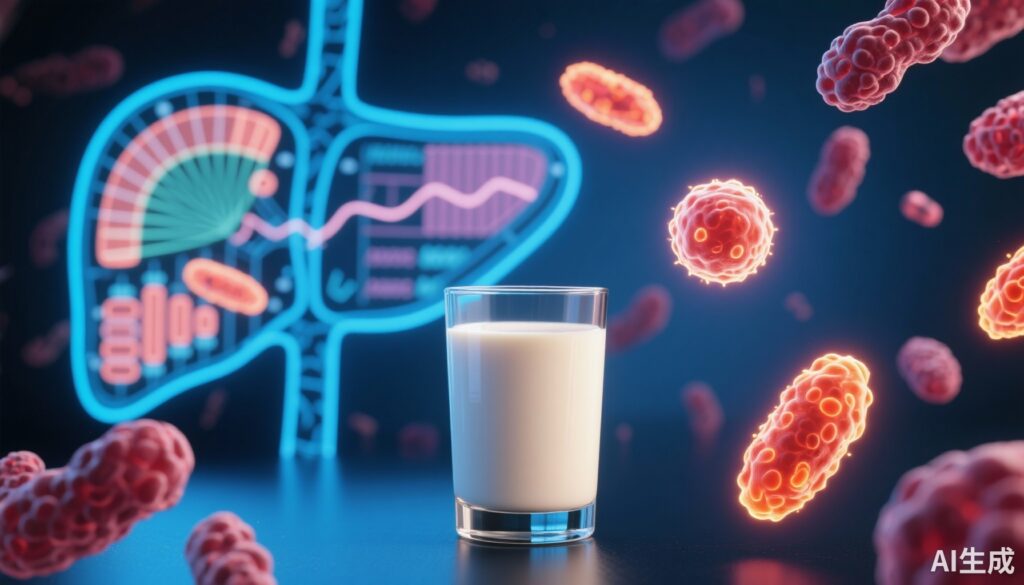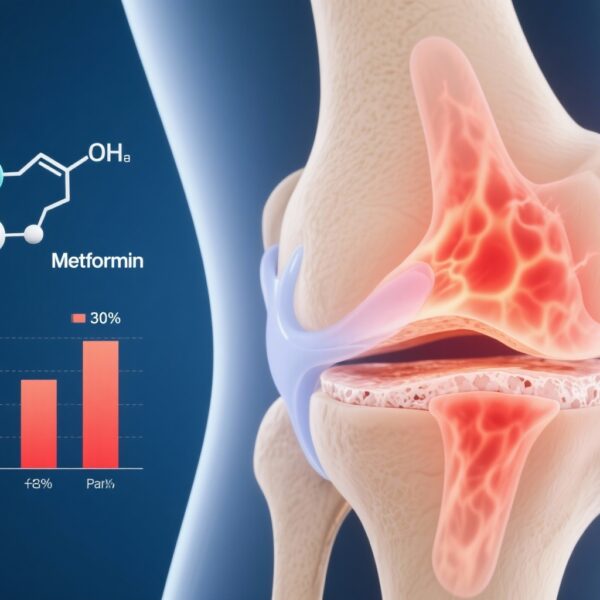Introduction: More Than Just a Morning Drink
For many, a glass of milk at breakfast is a routine choice for nutrition and energy. But recent scientific discoveries suggest its influence may extend far beyond bone health and stamina. Emerging evidence indicates that milk contains a sugar molecule—galactose—that can potentiate the body’s immune defenses against cancer by revitalizing T cells, the key soldiers in anticancer immunity.
The groundbreaking study led by research teams from Fudan University and Shanghai Jiao Tong University, published in Nature Cell Biology, reveals a hidden dialogue between dietary galactose, the liver, and immune T cells in the tumor microenvironment. This interaction prevents the premature exhaustion of T cells, which often impairs their cancer-fighting abilities, thereby significantly reducing tumor growth.
The Challenge: T Cell Exhaustion in Cancer
Our immune system relies heavily on CD8+ T cells to identify and eliminate cancerous cells. However, in the chronic battle against tumors, these T cells frequently enter a state known as “exhaustion,” where their function is diminished—they produce less interferon-gamma and express surface markers like PD-1 and TIM-3 that indicate dysfunction. This state severely limits the effectiveness of antitumor immunity.
Understanding how to prevent or reverse T cell exhaustion remains a significant goal in immuno-oncology to improve patient outcomes.
Scientific Evidence: Galactose Levels Correlate with Immune Potency
Researchers first observed in patients with lung, colorectal, and renal cancers that higher concentrations of galactose in the bloodstream were associated with increased numbers of interferon-gamma-positive CD8+ T cells within tumor tissues. This association suggested galactose might play a crucial role in enhancing the immune response to cancer.
To test this, the team administered a galactose-enriched diet to mouse models bearing melanoma, lung cancer, and colon cancer. Remarkably, mice with high-galactose diets showed significantly slowed tumor growth and longer survival compared to controls. Crucially, when T cells were genetically absent or depleted, the tumor-suppressing effect of galactose vanished, confirming that its anticancer benefits are T cell dependent.
How Galactose “Communicates” With T Cells: The Liver’s Role
Interestingly, galactose doesn’t act directly on T cells. Instead, it is primarily absorbed by liver cells, where it triggers a remarkable metabolic reprogramming. Galactose suppresses glycolysis—the process by which cells break down glucose to produce energy—in hepatocytes, leading to reduced activity of a key regulatory signaling pathway called mTORC1.
mTORC1 acts as a cellular energy sensor and controls numerous metabolic functions. Its inhibition activates the transcription factor Foxo1, which migrates into the nucleus and stimulates the production of a protein named insulin-like growth factor binding protein-1 (IGFBP-1).
IGFBP-1 circulates in the bloodstream and binds to insulin-like growth factor 1 (IGF-1), effectively blocking the IGF-1 signaling pathway. This pathway is known to contribute to immune cell exhaustion. By neutralizing IGF-1, IGFBP-1 prevents T cells within tumors from entering the exhausted state.
The researchers further validated this mechanism using genetically modified mice lacking Raptor, a critical component of mTORC1, in liver cells. These mice spontaneously produced higher IGFBP-1 levels and showed similarly enhanced antitumor T cell activity even without extra galactose.
Clinical Relevance: Patient Data Supports the Findings
In alignment with animal experiments, the study also demonstrated that cancer patients with elevated plasma IGFBP-1 had tumors rich in more functional CD8+ T cells. These T cells expressed lower levels of exhaustion markers (PD-1, TIM-3) while producing more interferon-gamma, signifying improved immune vigor.
This clinical correlation reinforces the concept that modulating metabolic pathways through diet-derived molecules can enhance immune responses against cancer.
Implications: Toward Nutrition-Based Immunotherapy
This discovery reframes the role of everyday dietary components, revealing them as modulators of complex immune interactions rather than merely sources of calories or nutrients.
While the research does not advocate indiscriminate high consumption of galactose or milk—recognizing potential metabolic or digestive risks—it opens an exciting avenue for “immune nutrition.” Through careful dietary modifications or targeted interventions, it may become possible to supplement conventional cancer therapies by empowering T cells via metabolic reprogramming.
Practical Considerations and Future Directions
– Personalized Nutrition: Future work may delineate optimal dietary strategies suited to individual metabolic and immunological profiles.
– Drug Development: Targeting the liver mTORC1-Foxo1-IGFBP-1 axis pharmacologically could mimic the beneficial effects of galactose.
– Combination Therapies: Nutritional interventions could synergize with immune checkpoint inhibitors and other immunotherapies.
Expert Insights
Dr. Patricia Nguyen, an immunologist not involved in the study, notes, “This work highlights the critical interplay between metabolism and immune function. It is an elegant example of how a common dietary sugar can influence systemic pathways to bolster cancer immunity.” She adds, “The challenge will be translating this into practical dietary recommendations and therapies that improve patient survival without unintended side effects.”
Patient Scenario: Michael’s Journey
Michael, a 58-year-old recently diagnosed with non-small cell lung cancer, was interested in adjunctive therapies to boost his immune response. After discussing with his oncologist, he incorporated modest amounts of dairy and galactose-rich foods into his diet alongside standard chemotherapy. Over several months, his immune profiling showed increased CD8+ T cell activity and decreased exhaustion markers. While this is anecdotal, it illustrates how nutritional insights may complement existing treatments.
Conclusion
The discovery that dietary galactose can reprogram liver metabolism to sustain antitumor T cell function uncovers a novel dimension in cancer immunology. By preventing T cell exhaustion through the liver’s secretion of IGFBP-1, a simple nutrient can significantly impact tumor progression.
This research not only deepens our understanding of the tumor-immune-metabolic nexus but also offers promising strategies to harness everyday dietary components to enhance immune surveillance and therapy in cancer patients.
References
[1] Du, X., Li, W., Li, G., et al. Diet-derived galactose reprograms hepatocytes to prevent T cell exhaustion and elicit antitumour immunity. Nature Cell Biology, 27, 1357–1366 (2025). https://doi.org/10.1038/s41556-025-01716-8



